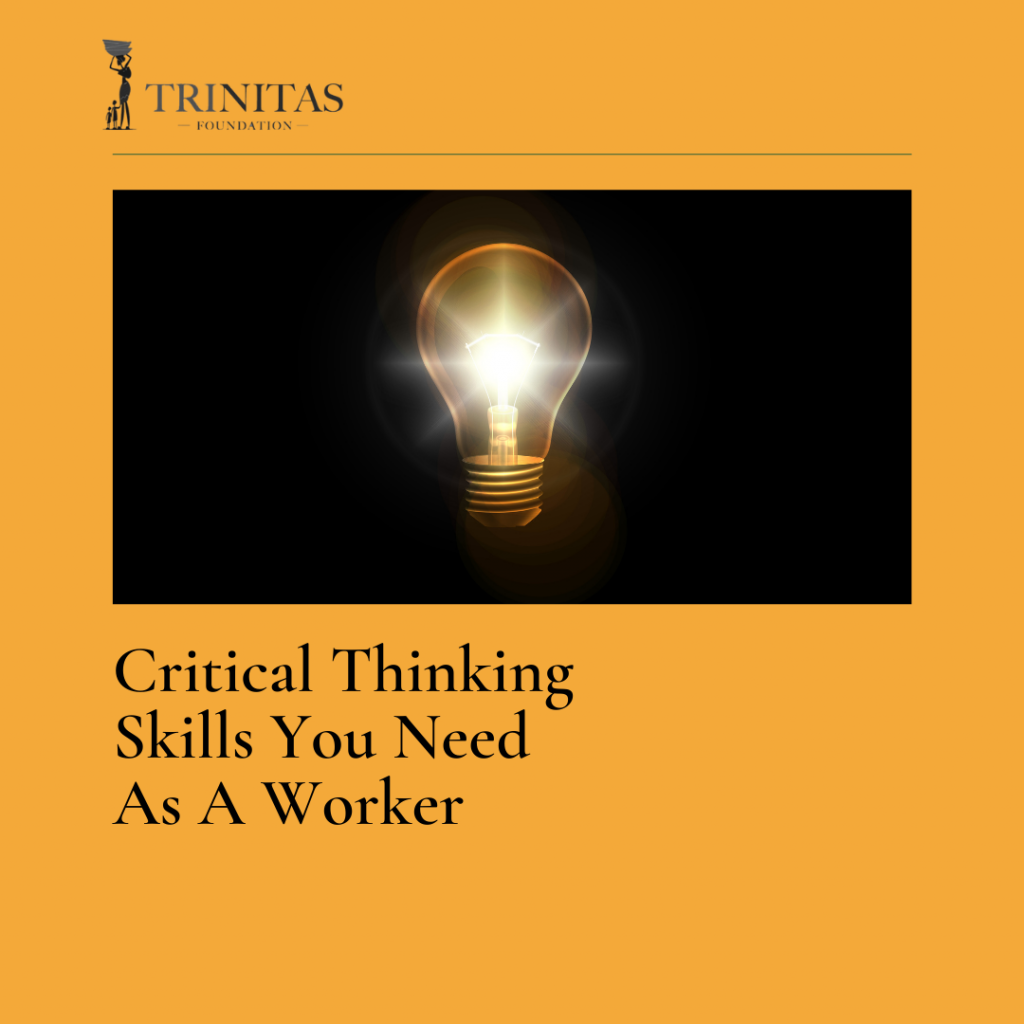No matter what walk of life you come from, what industry you’re interested in pursuing or how much experience you’ve already garnered, we’ve all seen firsthand the importance of critical thinking skills. In fact, lacking such skills can truly make or break a person’s career, as the consequences of one’s inability to process and analyze information effectively can be massive.
Critical thinking is the ability to think clearly and rationally, understanding the logical connection between ideas.
This is no easy task, which is why we aimed to help break down the basic elements of critical thinking and offer suggestions on how you can hone your skills and become a better critical thinker.
While there’s no universal standard for what skills are included in the critical thinking process, focusing on these can put you on the path to becoming an exceptional critical thinker.
Critical Thinking Skills (and how you can improve them)

- Identification
The first step in the critical thinking process is to identify the situation or problem as well as the factors that may influence it. Once you have a clear picture of the situation and the people, groups or factors that may be influenced, you can then begin to dive deeper into an issue and its potential solutions.
How to improve: When facing any new situation, question or scenario, stop to take a mental inventory of the state of affairs and ask the following questions:
- Who is doing what?
- What seems to be the reason for this happening?
- What are the end results, and how could they change?
- Research
When comparing arguments about an issue, independent research ability is key. Arguments are meant to be persuasive—that means the facts and figures presented in their favor might be lacking in context or come from questionable sources. The best way to combat this is independent verification; find the source of the information and evaluate.
How to improve: It can be helpful to develop an eye for unsourced claims. Does the person posing the argument offer where they got this information from? If you ask or try to find it yourself and there’s no clear answer, that should be considered a red flag. It’s also important to know that not all sources are equally valid—take the time to learn.
- Identifying biases
This skill can be exceedingly difficult, as even the smartest among us can fail to recognize biases. Strong critical thinkers do their best to evaluate information objectively. Think of yourself as a judge in that you want to evaluate the claims of both sides of an argument, but you’ll also need to keep in mind the biases each side may possess.
How to improve: “Challenge yourself to identify the evidence that forms your beliefs, and assess whether or not your sources are credible
When evaluating information or an argument, ask yourself the following:
- Who does this benefit?
- Does the source of this information appear to have an agenda?
- Is the source overlooking, ignoring or leaving out information that doesn’t support its beliefs or claims?
- Is this source using unnecessary language to sway an audience’s perception of a fact?
- Inference
The ability to infer and draw conclusions based on the information presented to you is another important skill for mastering critical thinking. Information doesn’t always come with a summary that spells out what it means. You’ll often need to assess the information given and draw conclusions based upon raw data.
The ability to infer allows you to extrapolate and discover potential outcomes when assessing a scenario. It is also important to note that not all inferences will be correct.
How to improve: An inference is an educated guess, and your ability to infer correctly can be polished by making a conscious effort to gather as much information as possible before jumping to conclusions.
- Determining relevance
One of the most challenging parts of thinking critically during a challenging scenario is figuring out what information is the most important for your consideration.
How to improve: The best way to get better at determining relevance is by establishing a clear direction in what you’re trying to figure out.
Even with a clear objective, however, it can still be difficult to determine what information is truly relevant. One strategy for combating this is to make a physical list of data points ranked in order of relevance. From there, you can narrow your focus on the less clear-cut topics that reside in the middle of your list for further evaluation.
- Curiosity
It’s incredibly easy to sit back and take everything presented to you at face value, but that can also be also a recipe for disaster when faced with a scenario that requires critical thinking.
How to improve: While it might seem like a curious mind is just something you’re born with, you can still train yourself to foster that curiosity productively. All it takes is a conscious effort to ask open-ended questions about the things you see in your everyday life, and you can then invest the time to follow up on these questions.
Being able to ask open-ended questions is an important skill to develop—and bonus points for being able to probe,
Become a better critical thinker

Trinitas Foundation Workers Program (TWP)
Follow us on social media for more:
Instagram – https://www.instagram.com/trinitasafrica/
Twitter – https://twitter.com/trinitasafrica
Facebook – https://www.facebook.com/profile.php?id=100071618330959
Linkedin – https://www.linkedin.com/company/trinitas-foundation/
Youtube – https://www.youtube.com/channel/UCzgnTj52RMT1XP8jRWfSWHA